Discover The WW2 Podcast
The WW2 Podcast

283 Episodes
Reverse
Douglas MacArthur was one of the most prominent — and controversial — generals of the Second World War. As Field Marshal of the Philippines, he withdrew to Australia in 1942, famously declaring, “I shall return.” That promise became central to his reputation and shaped the rest of his war. How far did MacArthur’s vow influence his actions? Was he an effective commander, strategist, and leader in the Pacific campaign? These questions continue to divide historians. In this episode of the WW2 Podcast, I’m joined by Peter Mansoor, author of Redemption: MacArthur and the Campaign for the Philippines. We discuss MacArthur’s leadership in the Second World War, his successes, failures, and his lasting legacy. patreon.com/ww2podcast
By January 1945, the war in Europe neared its final phase. In the west, the Allies had repelled the Ardennes offensive. In the east, the Red Army prepared the Vistula–Oder offensive, a huge strike that pushed German forces out of Poland. The Soviet advance carried them to the very gates of Berlin. The Vistula–Oder offensive in 1945 liberated vast areas, including Auschwitz. It also created the springboard for the final assault on Germany. Stalin wanted more than battlefield victory. He pushed Soviet borders west, reclaimed imperial lands, and shaped Poland’s fate before the war ended. The Wehrmacht resisted fiercely. German forces launched a desperate counterattack, their last major armoured offensive on the Eastern Front. In this episode of the WW2 Podcast, I talk with Prit Buttar, author of Into the Reich: The Red Army’s Advance to the Oder in 1945. Into the Reich is also available on Spotify and Audible patreon.com/ww2podcast
The Maginot Line was one of the most ambitious defensive projects of the 1930s. Built along France’s eastern border, this vast system of underground forts, tunnels, and bunkers included hospitals, kitchens, telephone exchanges, electric railways, and turrets that could rise from the ground to strike at attackers. Designed to withstand artillery and even chemical weapons, it represented the cutting edge of military engineering. Yet when Germany invaded in May 1940, France fell in just six weeks. The Maginot Line has since become a byword for failure — an expensive defensive shield that seemed useless against Blitzkrieg. But was it really such a mistake, or have we misunderstood its role in the Second World War? In this episode of the WW2 Podcast, I’m joined by Professor Kevin Passmore, author of The Maginot Line: A New History. Together, we explore how the defences were built, how they performed in 1940, and what the Maginot Line can really tell us about the fall of France. patreon.com/ww2podcast
In 2005, the BBC launched an ambitious public history project called The People’s War. It aimed to collect and preserve the memories of those who lived through the Second World War, inviting the public to share their experiences online. This was long before today’s social media platforms, and the scale of the response was remarkable. By the time the project closed in 2006, over 650,000 contributions had been submitted. Although the site is now frozen in time, it remains a wonderful resource filled with small, personal vignettes of the war — stories that might otherwise have been lost. It’s something I’ve dipped into myself many times over the years. My guest for this episode is John Willis, who was the BBC’s Director of Factual when The People’s War project was launched. John has now curated a selection of these submissions in his new book, The People’s War. patreon.com/ww2podcast
In this episode of the WW2 Podcast, we explore the remarkable history of the Malay Regiment during the Second World War. Formed in the 1930s as an experiment with just 25 local recruits, the regiment quickly grew into a respected fighting force. By the time of the Japanese invasion of Malaya in late 1941, it had expanded to two full battalions. These soldiers would be thrown into the heart of the fighting during the desperate defence of Singapore in early 1942. To help tell this story, I am joined by Stuart Lloyd, author of The Malay Experiment: The Colonial Origins and Homegrown Heroics of the Malay Regiment. His book examines how the regiment was created, its role in the war, and the lasting legacy it left behind in Malaysia’s military history. patreon.com/ww2podcast
In this episode, we’re turning our attention to British India during the Second World War. While the war in Europe and the Pacific often dominates the narrative, the role India played—both as a military contributor and as a nation on the cusp of independence—is often overlooked. I’m joined by Philip Craig, author of 1945: The Reckoning. His book looks at the global repercussions of the war, including the political and social upheavals that reshaped the world in its aftermath. One of the key stories is how India’s experience during the conflict accelerated its path to independence. patreon.com/ww2podcast
What was the situation in Burma following the Allied victories at Imphal and Kohima? By the summer of 1944, those two hard-fought battles had marked a major turning point in the Burma campaign. Japanese forces were in retreat, and the initiative had passed firmly to the Allies. But pushing into central Burma would require bold strategy, speed, and coordination across air, land and river. I’m joined by Jack Bowsher, author of Thunder Run: Meiktila 1945. We will be discussing the dramatic and fast-paced battle for Meiktila, a pivotal moment in the Allied drive south that contributed significantly to the conclusion of the Burma campaign. patreon.com/ww2podcast
In this episode of the WW2 Podcast, we’re turning our attention to the opening phase of one of the most brutal and vast campaigns of the Second World War—Operation Barbarossa. On 22 June 1941, Hitler launched his long-anticipated invasion of the Soviet Union. In the first two weeks, the German Wehrmacht made some of its fastest advances of the war. Panzer groups surged deep into Soviet territory, clashing with Russian armoured forces—encounters that were sometimes unexpected and, for both sides, revealing. To explore this dramatic opening stage of the war in the East, I'm joined by Richard Hargreaves, author of Opening the Gates of Hell, which examines the scale, speed, and shock of Barbarossa’s beginning. patreon.com/ww2podcast
When we talk about the Second Front, most of us think of the Allied invasion of Northwest Europe—D-Day, June 1944. But in his new book, Second Front: Anglo-American Rivalry and the Hidden Story of the Normandy Campaign, historian Professor Marc Milner offers a different perspective. What if the real second front wasn’t in Normandy, but in Washington? Milner argues that while Britain fought alongside the United States on the battlefields of Europe, it was also engaged in a very different kind of struggle across the Atlantic: a political and diplomatic battle to retain its influence over an increasingly dominant America. By the time Allied troops landed in France, the United States had not only become the senior partner in the alliance but had begun reshaping the postwar world, often at the expense of British interests. But as we’ll hear, this wasn’t just about wartime politics or military planning. The roots of Anglo-American rivalry ran much deeper, stretching back to the way each nation remembered the First World War. Joining me to discuss all this is Professor Marc Milner.
In this episode, we’re doing something a little different. I recently joined Scott Bury on his podcast Beyond Barbarossa, which takes a close look at the Eastern Front of the Second World War from a Soviet perspective. Together, we explored the topic of American aid to the USSR through the Lend-Lease program. The usual narrative often paints Lend-Lease as the lifeline that saved the Soviet Union. But, as with most things in history, the reality is far more complex. While Lend-Lease undeniably made a difference—especially in the war's later stages—its impact, timing, and strategic value are worth examining more closely. So, in this episode, we dig into what was actually sent, when it arrived, how it was used, and whether or not it really was decisive in turning the tide on the Eastern Front. patreon.com/ww2podcast
In this episode of the WW2 Podcast, I am joined by Professor James Crossland to discuss the extraordinary life of Robert Bruce Lockhart — a British diplomat, journalist, author, and secret agent. Though not a household name, Lockhart was a key figure behind the scenes of 20th-century history. His career began before the First World War and took him from revolutionary Russia to wartime Britain, often placing him near the centre of power and influence. During the Second World War, he served as Director-General of the Political Warfare Executive, the organisation responsible for coordinating all British propaganda efforts against the Axis powers. Lockhart’s life reads like a spy thriller, full of intrigue, diplomacy, and covert operations. James Crossland, author of Rogue Agent: From Secret Plots to Psychological Warfare – The Untold Story of Robert Bruce Lockhart, sheds light on the man whose influence was far greater than his fame. patreon.com/ww2podcast
In this episode of the WW2 Podcast, I am joined by Bernd Häber to discuss the remarkable story of his grandfather, Fritz Häber — a German soldier who became a prisoner of war in American custody at the end of World War II. During his 16 months in a U.S. POW camp, Fritz kept a diary that not only captured the daily realities of captivity but also reflected on his wartime experiences and personal history. Now published as Fritz Häber: The Complete Diary – 16 Months in an American POW Camp, the account provides a rare and honest perspective from the losing side of the conflict. Bernd shares insights into his grandfather’s life, the motivations behind the diary, and the legacy it represents — a deeply human story of reflection, identity, and the long shadow of war. You can find more about Fritz at 16monthsaspow.com patreon.com/ww2podcast
In the early stages of America’s involvement in the Second World War, the U.S. Army began forming a new kind of fighting force—elite units trained for speed, surprise, and special operations behind enemy lines. These were the first Army Rangers, inspired by British Commandos and destined for some of the toughest missions of the war. In this episode, I’m joined by historian and author Mir Bahmanyar to talk about the formation and deployment of these early Rangers, from their beginnings in North Africa and Sicily to their fateful engagement at Cisterna in 1944, a battle that ended in disaster for two Ranger battalions. Mir is the author of ‘Houdini Club: The Epic Journey and Daring Escapes of the First Army Rangers of WWII’, a book that sheds light on the origins, ethos, and early missions of these extraordinary soldiers. patreon.com/ww2podcast
During the critical interwar years, Belgium found itself walking a diplomatic tightrope—maintaining neutrality while neighbouring Germany rapidly rearmed. Faced with the growing threat of conflict, the country was forced to modernise its defences. One of Belgium’s key military developments during this period was the T-13 tank destroyer—an armoured vehicle that, although modest by international standards, played a vital role in the country's attempt to resist the German invasion in 1940. In this episode, we head to Brussels to uncover the story of the T-13 with Robby Houben from the Belgian Royal Military Museum. Patreonpatreon.com/ww2podcast
On the morning of June 6th, 1944, war photographer Robert Capa waded ashore on Omaha Beach during the Allied landings in Normandy. What happened next became the stuff of legend: under withering fire, Capa supposedly captured over a hundred photographs of the chaos and courage of D-Day, only for all but eleven to be lost in a darkroom accident. These surviving images, the so-called “Magnificent Eleven,” helped define the visual memory of D-Day and cemented Capa’s reputation as the greatest war photographer of the 20th century. But what if the story we've long accepted isn't entirely true? In his book Back into Focus: The Real Story of Robert Capa's D-Day, Charles Herrick takes a forensic look at the events of that day, unraveling inconsistencies in Capa's own account and challenging the myths that have grown around his legacy. Drawing on official military records, eyewitness testimony, and detailed photo analysis, Herrick offers a new—and at times controversial—perspective on one of the most iconic moments in photojournalism history. I’m delighted to welcome Charles to the podcast today to talk about what really happened on D-Day, how the legend of Robert Capa was built, and what his findings mean for how we understand both history and heroism. patreon.com/ww2podcast
Today, we are exploring a topic that doesn’t get talked about much — the British tanks that ended up serving with the Red Army during the Second World War. We often think about the Soviet Union producing huge numbers of its own tanks like the T-34, but in the early years of the war—and even before it—the Soviets were looking abroad for armoured vehicles to strengthen their forces. Britain, with its long history of tank development stretching back to the First World War, was one of the countries they turned to. Joining me is Peter Samsonov, who’s spent a lot of time researching Soviet armoured warfare and is the author of 'British Tanks of the Red Army'. patreon.com/ww2podcast
In this episode, I’m joined by bestselling author Damien Lewis to talk about one of the remarkable men featured in his new book SAS Great Escapes Four — Archie Gibson. Archie served with the Long Range Desert Group and worked closely with the SAS during some of their earliest and most daring operations. His wartime journey took him from the harsh deserts of North Africa to the rugged terrain of Yugoslavia, where he operated alongside local resistance fighters behind enemy lines. We also delve into the ongoing campaign to award SAS legend Paddy Mayne a posthumous Victoria Cross, recognition he was controversially denied during the war. patreon.com/ww2podcast
In the final weeks of the Second World War, as Soviet forces closed in on Berlin, tens of thousands of German soldiers and civilians found themselves encircled in what became known as the Halbe Pocket. In a desperate attempt to break out west and surrender to the Americans rather than the Soviets, brutal fighting erupted in the forests south of Berlin. The result was one of the bloodiest and most chaotic battles of the war’s final days. Joining me is David Sumner. David is a British-German World War II historian and podcaster based in Berlin. He’s the producer and host of Europe At War, a weekly podcast that explores lesser-known battles and stories of the Second World War, with a particular focus on the Eastern Front. You can find David at davidsumnerhistory.com. patreon.com/ww2podcast
The 7th Infantry Regiment, known as the "Cottonbalers," is one of the oldest units in the U.S. Army, originally formed in 1812. It has fought in nearly every major American conflict, including the Civil War, both World Wars, Korea, and Iraq. Renowned for its bravery and deep traditions, the regiment remains an active combat unit to this day. I'm joined by Professor John McManus, whose 2009 book American Courage, American Carnage chronicles the unit's remarkable history. During World War II, the 7th landed in North Africa as part of Operation Torch, fought through Sicily and Italy, stormed the beaches of Southern France in Operation Dragoon, and ended the war as the first American unit to reach Hitler’s mountain retreat at Berchtesgaden. The regiment also takes centre stage in the upcoming computer game Burden of Command, where John serves as the historical advisor. If you’d like to hear more about the game, head over to patreon.com/ww2podcast. patreon.com/ww2podcast
In this episode of the WW2 Podcast, I’m joined by Clare Mulley to uncover the extraordinary story of Elżbieta Zawacka—known by her codename, "Zo"—a woman who defied the odds as a resistance fighter, courier, and special operations agent during the Second World War. Zo was the only woman to make the perilous journey from Warsaw to London as an emissary of the Polish Home Army. After completing secret training in Britain, she became the only female agent to parachute into Nazi-occupied Poland. There, with the Gestapo hunting her and her family arrested, she played a crucial role in the resistance, fighting in the Warsaw Uprising and working toward Poland’s liberation. After the war, despite being one of Poland’s most decorated female soldiers, the Soviet-backed communist regime imprisoned Zo, and her story was buried for decades. Now, thanks to new archival research and exclusive interviews, Clare brings her remarkable life back into the spotlight in the excellent book Agent Zo. patreon.com/ww2podcast


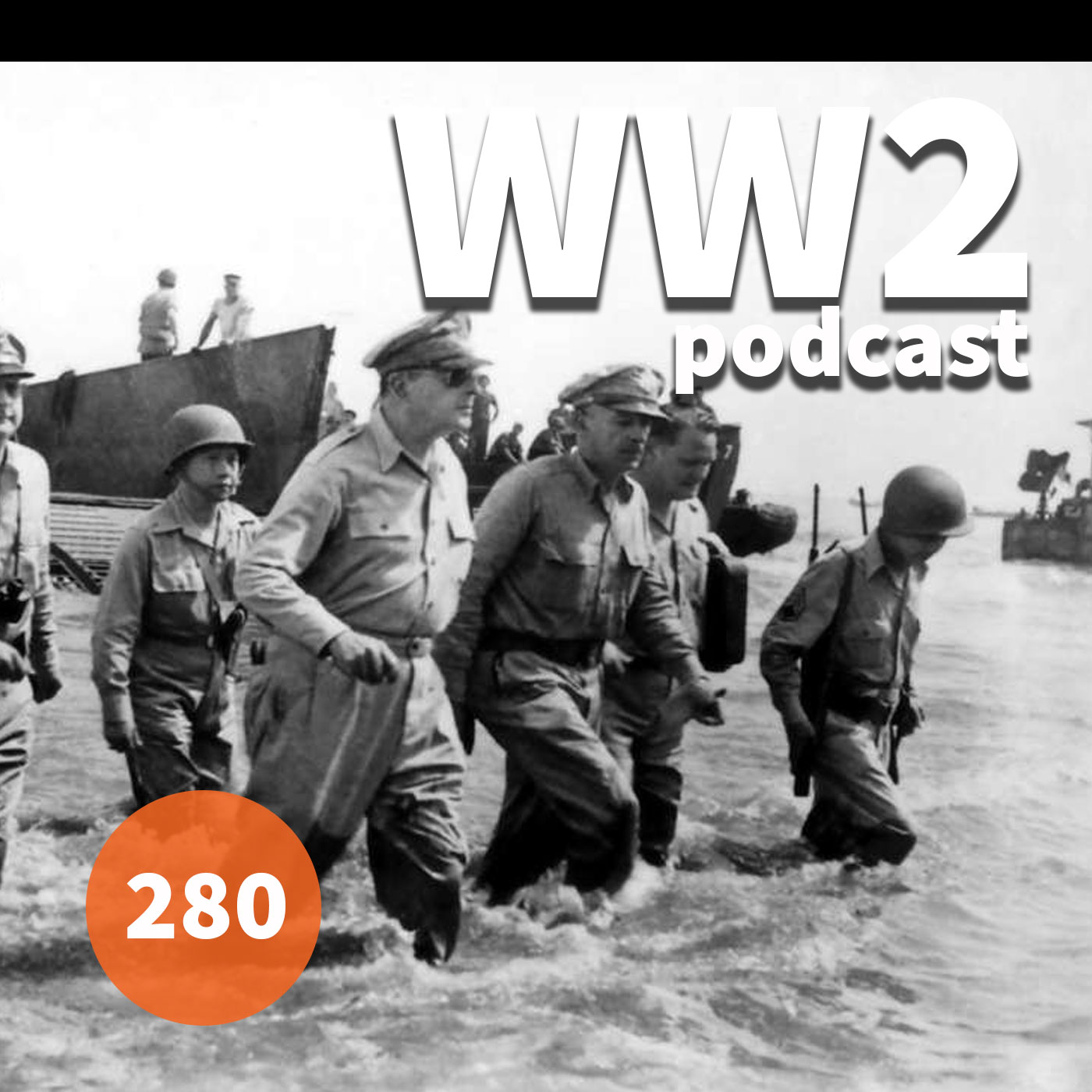
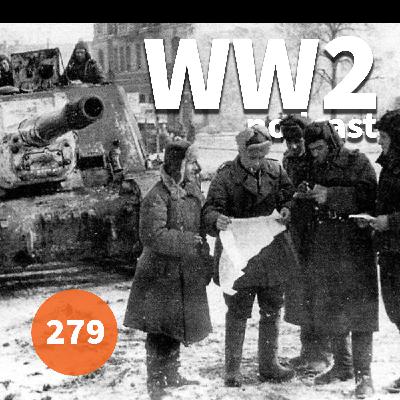

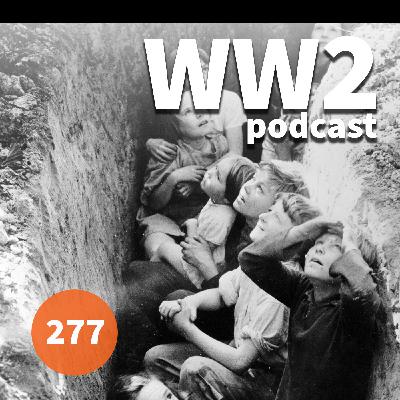
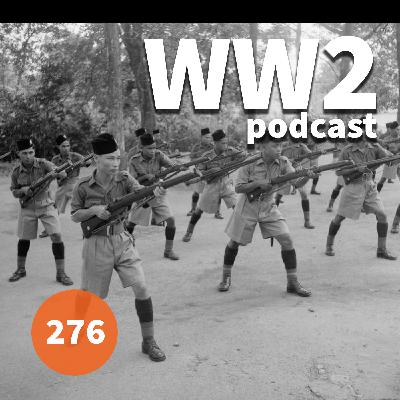

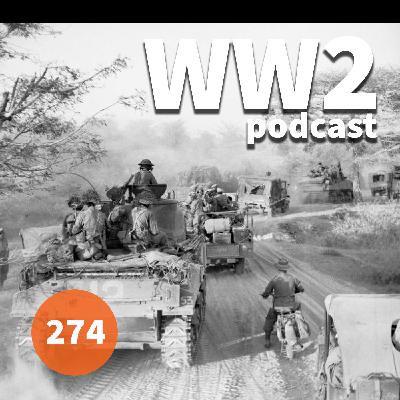
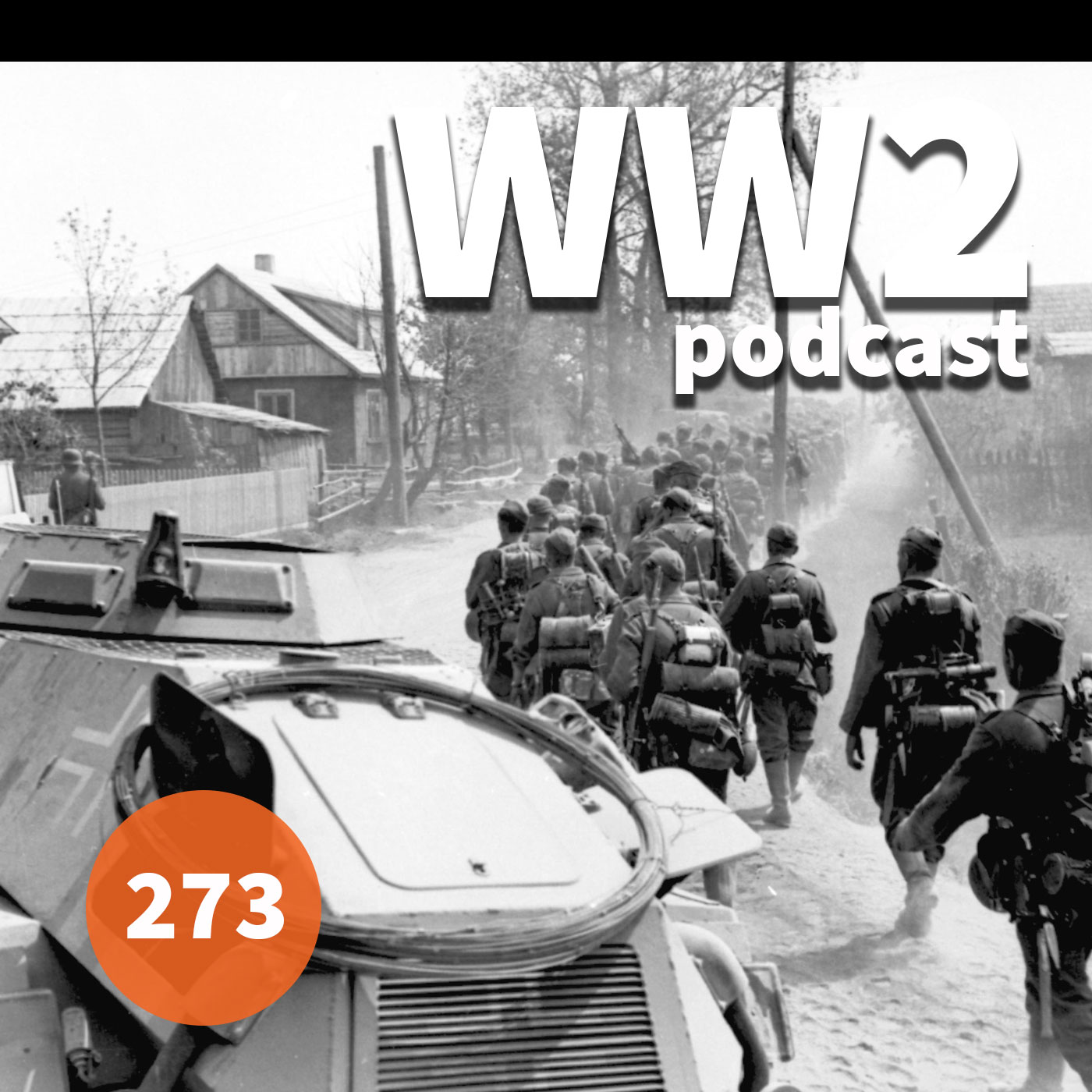
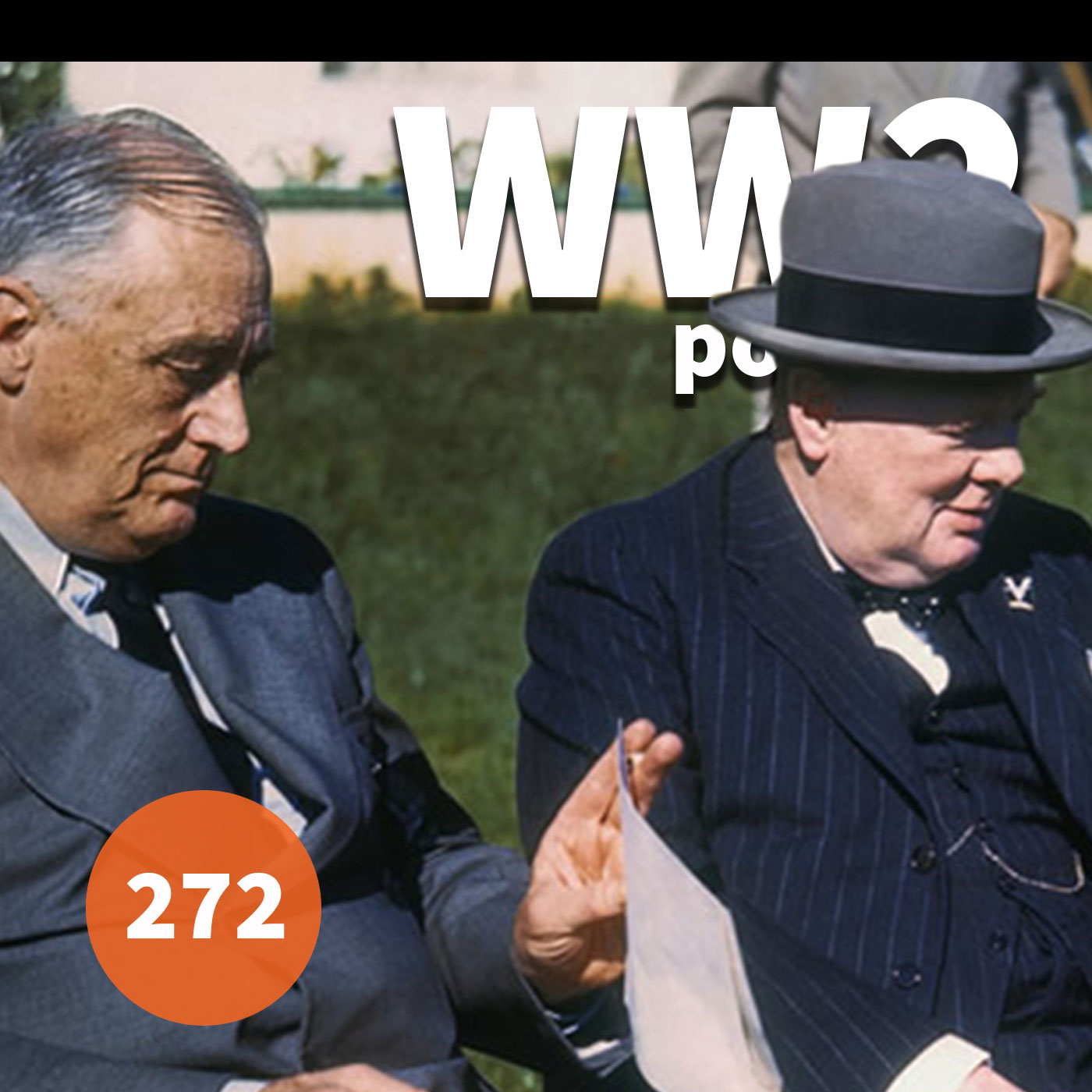
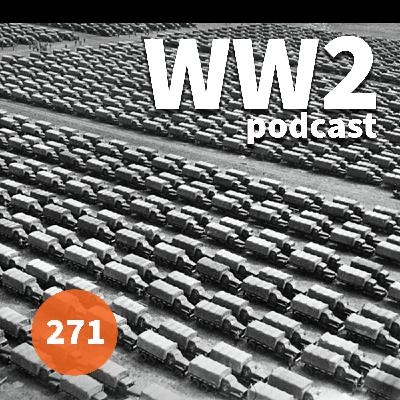
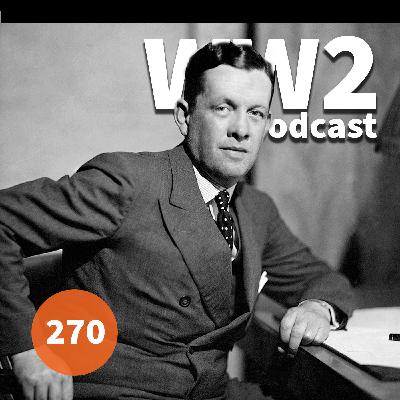
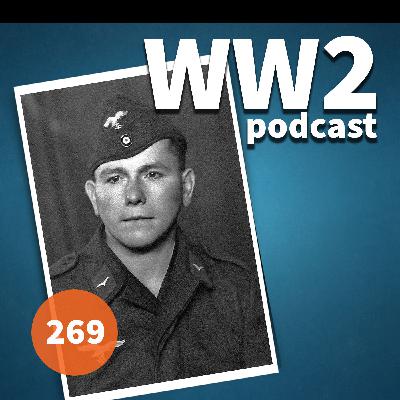
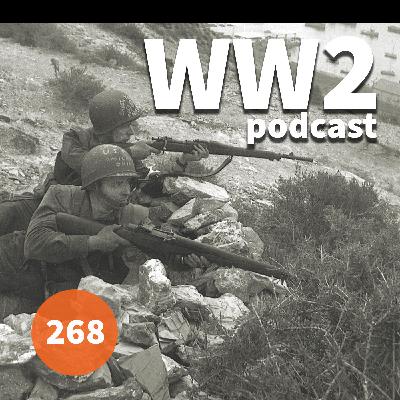
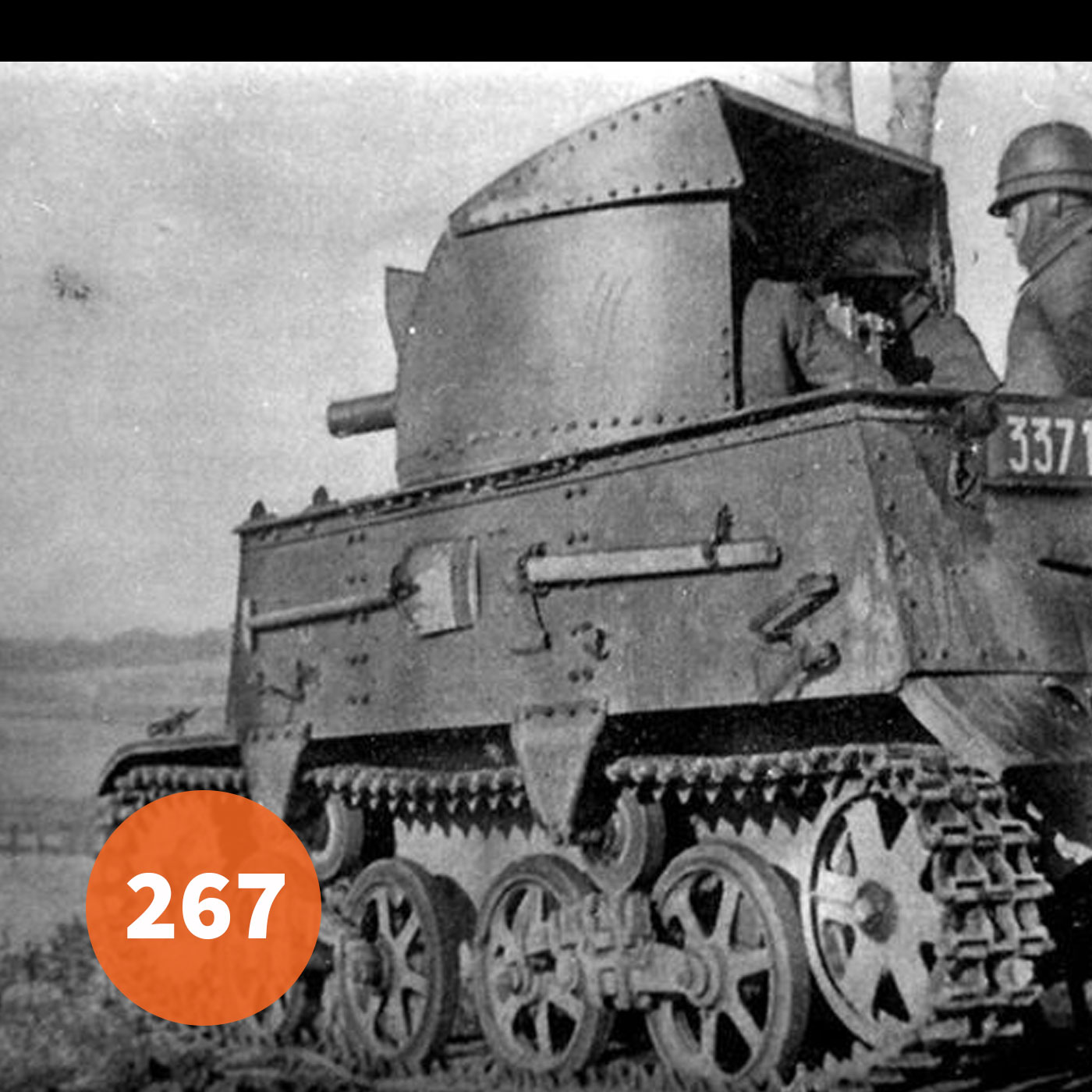
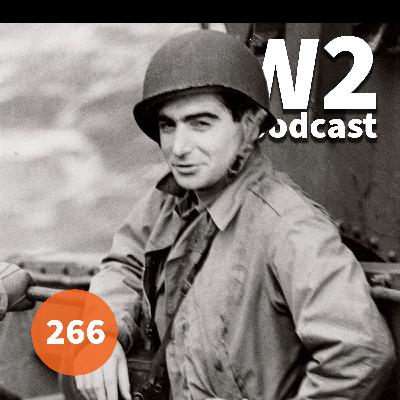
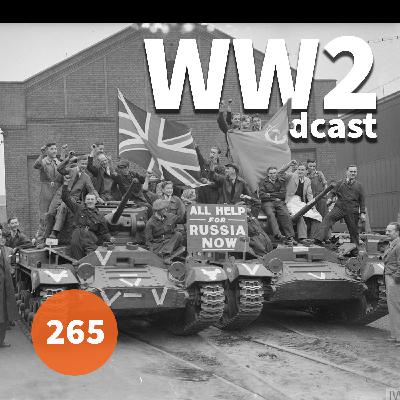

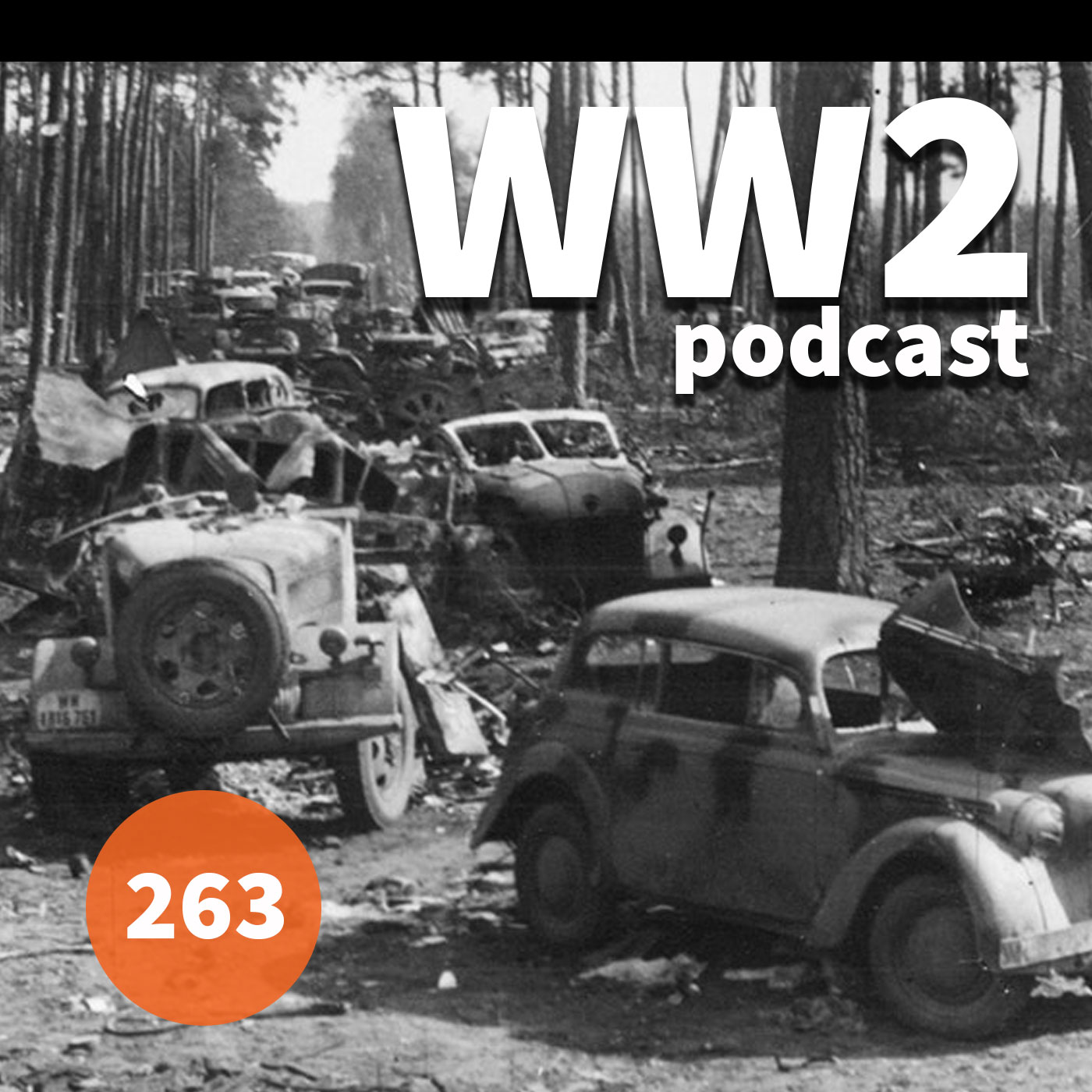
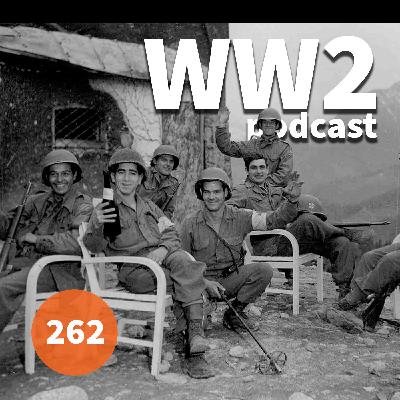
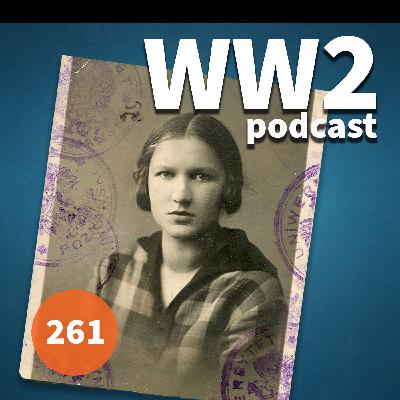



Hi. Agent Zo certainly was The Real Deal for the Polish Resistance. However as far as "firsts" go & equal female contribution to Resistance efforts (albeit mostly in France) it's hard to overlook The White Mouse...KIWI-BORN Nancy Wake.
One of the best episodes yet. Great work
Fascinating, I allways look forward to the boys own stories, but it is often the less obvious stories or podcasts that are the best.
🔴✅📺📱💻ALL>Movies>WATCH>ᗪOᗯᑎᒪOᗩᗪ>LINK>👉https://co.fastmovies.org
I assumed this woild be about the 442nd RCT, but it's primarily about internment. And it's an excellent episode.
First the bloke says Kesselring was a sound commander, and then he says he was a great commander. Tell him to make his mind up. Montgomery became commander of the 8th Army after the sacking of Auchinleck and the death of Gott. He did not push them out of the way. Stupid comment. in addition, if plans are good, why not use and realise them successfully. Foolish not to - no point in starting from square one if you have inherited good prep. The interviewee has an agenda against Montgomery and bleats on about him every time he's on.
have to do a story on the devil's brigade and a man named tommy prince
I love army men I have 250 army men .
The pacific was a great mini-series
By far, the most interesting WW2 Podcast I've ever listened to. Provides explicit detail on certain details.
Certainly one of the most complicated and fascinating figures of the prior century.
Mr Hooten is very annoying and needs to understand that while he knows his subject we don't know what he is talking about. Needs to calm down, finish his sentences, stop interrupting and answer the questions.
Definitely a topic I've heard very little of.
very interesting episode but I am SICK TO DEATH of the Monty bashing. Yes, an egotist - we all know that so why bleat on and on and on about it. Find a successful commanding officer proven to be without one.... Unlike many, he owns uo to his errors in his autobiography. As to regarding him as a loser..... REALLY ?
As always another great episode
Angus thanks for your podcasts! Really enjoy them, and if there's the odd one that's outside my interest bubble (which is rare), I move to another. Really appreciate your efforts👍
Wow...thanks for Britsplaining Juno Beach.
nice
love this guest ... interesting and informative stuff about Hiroshima journalism
I never knew that Jimmy Stewart ending up being a Brigadier general.